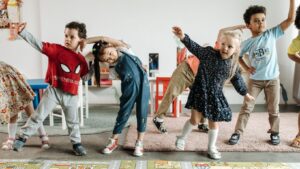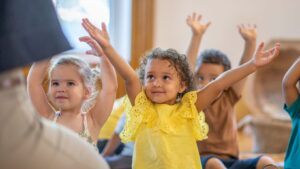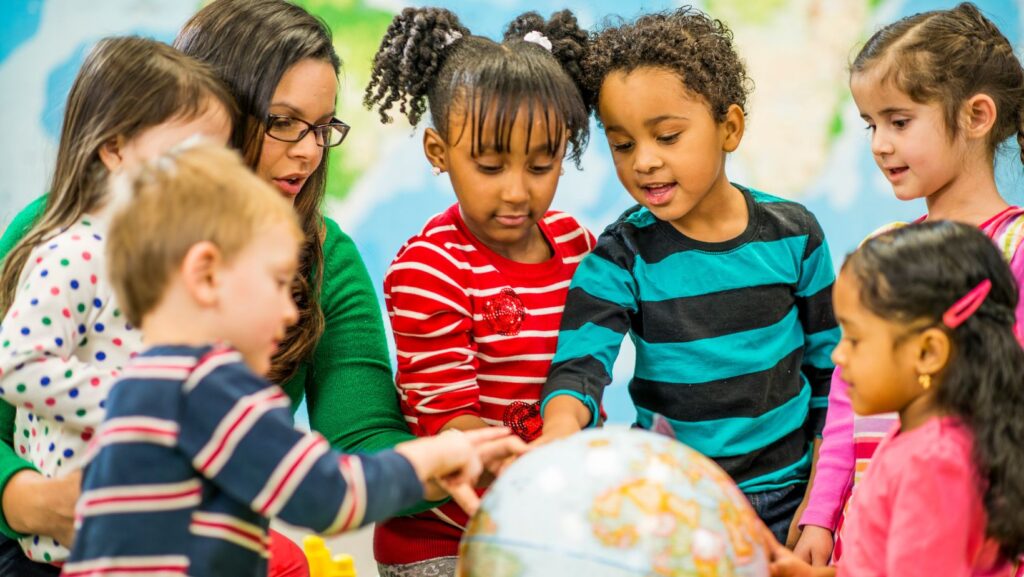In the bustling world of toddlers, every moment is an opportunity for exploration and growth. Engaging in family preschool activities isn’t just a fun way to pass the time; it’s a stepping stone in a child’s development. This article offers a treasure trove of ideas to spark their curiosity and foster their learning.
From creative crafts to interactive story times, these activities are designed to strengthen family bonds while boosting your preschooler’s cognitive and social skills. Whether it’s a rainy day indoors or a sunny afternoon in the park, you’ll find an activity that fits the bill.
Family Preschool Activities
 Family preschool activities play a dynamic role in a child’s cognitive and social development. Backpacking on previous discussions, these activities do far more than keeping preschoolers entertained. They aid significantly in advancing a child’s motor skills, decision-making abilities, and emotional intelligence. For instance, activities like puzzle-solving enrich preschoolers’ analytical skills. Similarly, taking part in team games instills in them the value of cooperation, evidencing the practical utility of family preschool activities. Preschoolers engaged in active learning through such activities have shown noteworthy improvements in both their learning curve and overall behavior, as substantiated by multiple educational research results.
Family preschool activities play a dynamic role in a child’s cognitive and social development. Backpacking on previous discussions, these activities do far more than keeping preschoolers entertained. They aid significantly in advancing a child’s motor skills, decision-making abilities, and emotional intelligence. For instance, activities like puzzle-solving enrich preschoolers’ analytical skills. Similarly, taking part in team games instills in them the value of cooperation, evidencing the practical utility of family preschool activities. Preschoolers engaged in active learning through such activities have shown noteworthy improvements in both their learning curve and overall behavior, as substantiated by multiple educational research results.
Strengthening Family Bonds
Family preschool activities also serve to boost familial bonds. They provide an opportunity for parents and children to spend quality time together. Activities like baking, crafting, or storytelling impart not only the joy of shared experiences but also foster mutual understanding and deeper connections. For example, parents assisting children in craft activities understand their child’s primary interests and skillsets. Similarly, kids partaking in a story told by their parents develop a sense of security, enhancing their emotional bond. With family activities, it’s not just about what you’re doing; it’s more about doing it together that cement familial ties.
Popular Types of Family Preschool Activities
Children thrive on interaction, and engagement within a variety of activities fosters this growth. Offering numerous benefits, including reinforced learning and enhanced behavior, these activities cover diverse themes such as creative arts, science, music, literacy, and games.
Creative Arts and Crafts
Children reveal their inner world through drawing, painting, and crafting. It unlocks their creativity, builds fine motor skills, and encourages open-ended thinking. Activities may encompass finger painting, paper-mache crafting, or sculpting with play dough. Parents can also engage their preschoolers in creating DIY projects, such as homemade puppets or tie-dye shirts.
Fun with Science and Nature
Introducing preschoolers to science and nature initiates a new way of gaining knowledge. It sparks their curiosity, develops problem-solving skills, and instills an appreciation for the natural world. They can plant seeds, observe diverse insects under a magnifying glass, or even predict the weather. Parents might consider turning a stroll into a leaf collection expedition, with every trek offering different varieties.
Music and Movement Activities
Music engages children’s senses and body coordination. It boosts memory retention, enhances spatial intelligence, and fosters a sense of rhythm. Dance-centric games, pretend-play marching bands, or song-making sessions can serve as compelling activities. Parents could utilize everyday household items to create an impromptu percussion band, inspiring untapped talents.
Literacy and Storytelling Games
Literacy activities lay the groundwork for language development, reading aptitude, and imaginative thinking. Incorporating them into preschool routines encourages a love for books, boosts vocabulary, and promotes comprehension skills. Preschoolers might engage in storybook puppets, letter treasure hunts, or role-playing based on favorite book characters. Parents can actively participate by conducting dramatic readings of bedtime stories, enhancing the entire storytelling experience.
Planning Your Family Activity Schedule
Planning a family activity schedule stimulates a rich, organized environment that augments a child’s development. It incorporates the child’s interests and curiosities, relevant educational concepts, and family participation.
Balancing Structure with Spontaneity
 An optimized family activity schedule constitutes a balance between structure and spontaneity. Structure lays the groundwork for a routine that gives children a sense of security, promoting emotional well-being and cognitive growth.
An optimized family activity schedule constitutes a balance between structure and spontaneity. Structure lays the groundwork for a routine that gives children a sense of security, promoting emotional well-being and cognitive growth.
For instance, a structured activity might involve a daily nature walk at 10 am, permitting children to observe seasonal changes, wildlife, and weather patterns; it teaches them about consistency of the environment and adapts them to a routine schedule.
Contrarily, spontaneous activities encourage flexibility and adaptability, essential life skills. They also allow space for authentic teachable moments.
As an example, spotting a rainbow after a sudden morning rain shower could prompt an impromptu science lesson about refraction, reflection, and dispersion of light.
In this way, by blending structure and spontaneity, a family enriches the child’s learning environment, making it dynamic, flexible, and engaging.
Involving Siblings in Preschool Activities
Involving siblings in preschool activities fosters shared learning experiences that can strengthen bonds. Older siblings often become secondary teachers, supporting younger ones in understanding and executing activities, stimulating relational growth.
Take, for instance, a literacy activity like weekly story time. The older sibling can choose a book and read it out loud to the younger one, improving their own reading skills while the younger sibling grasps new words and language patterns in the process.
Similarly, constructing a family art project involves everyone, regardless of their age. For example, creating a seed mosaic, where each family member contributes a part, enhances teamwork, boosts creativity, and fosters a sense of belonging.
Involving siblings in preschool activities forms an essential part of the family activity schedule, promoting interpersonal skills and translating into lifelong relational benefits.

